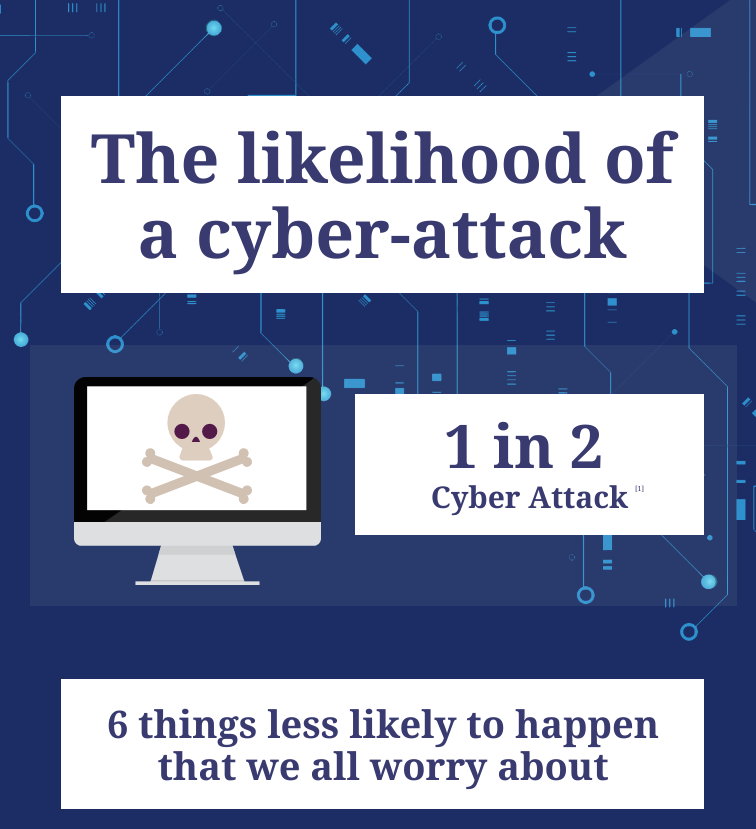The chances of experiencing a cyber breach
The likelihood of a cyber-attack summary
Cyber attack
An article from the BBC reported that 55% of UK businesses had experienced a cyber-attack so far in 2019. This gives a business a 1 in 2 chance of experiencing a cyber-attack. We compare this to the 6 occurrences below that are less likely to happen…
Living to 100
With modern medicine, people are living much longer these days. Because of this, there is a 1 in 3 chance that you will live past 100. However, you are still statistically more likely to experience a cyber-attack as a UK business.
Closing your business
According to Fundera, 20% of businesses will fail in their first year. This gives a 1 in 5 chance of a business failing, which is still less likely to happen than a cyber-attack. An uninsured cyber-attack could also be a reason for why a business might need to shut down.
Repaying your student loan
In their article about student loan repayments, Save the Student revealed the likelihood of repaying a student loan. Because the loan gets written off after 25 years of payments, it is likely that only 1 in 6 students will ever fully pay off their student loans.
Dying in a road accident
In an attempt to persuade people that nuclear power was safe, scientists were asked to compile some information on causes of death that were statistically more likely to affect them. One of these was a driving accident, which was a 1 in 8,000 chance, which is still less likely than a cyber-attack.
Death by accident at work
Coming in at 1 in 40,000, the chances of you dying because of an accident at work are substantially lower than experiencing a cyber-attack.
Getting hit by lightning
At the time of writing, the UK population is estimated to be around 66 million, and the Royal Society for the Prevention of Accidents estimated that between 30-60 people are struck by lightning every year. So by dividing 66 million by 60, you get roughly a 1 in 1,100,000 chance of being struck by lightning.
Cyber insurance with Premierline
As the dependence on digital technology and communications changes, so do the habits of criminals. Cyber-crime is now estimated to bring in $1.5 trillion worldwide for cyber criminals and is now, undeniably, a huge threat to UK businesses. The introduction of GDPR has made it important, now more than ever, to protect your digital world.
Premierline is a specialist business insurance broker who works with some of the most well-known insurance companies in the UK to offer you a bespoke insurance product that suits your business. Our cyber insurance product is designed to help you recover from a cyber-attack, by rebuilding your systems and recovering data, covering your loss of income and handling communications with your customers, regulators and agencies to protect you following a breach.
Get in touch to speak to one of our trained business insurance experts who can give you more information about our Cyber Insurance covers.

















